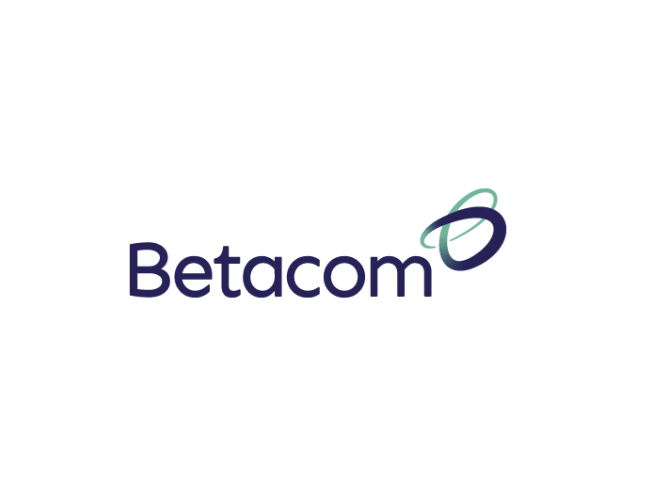Last week, I had an interesting conversation with executives from Betacom about the private wireless segment. They briefed me on their company, the relatively new and rapidly growing private wireless network sector, the communication challenges every company has to solve and what we can expect going forward in this space. Let me share a few thoughts with you about this company and this sector.
First, private wireless remains on a strong growth trajectory and does not seem to be affected by the weak economy like so many others are.
Companies moving from public wireless, Wi-Fi to private wireless
Companies are increasingly faced with the need to communicate quickly, effectively, with more control and security. That’s why they are increasingly moving forward from public wireless and Wi-Fi to next generation services like private wireless networks.
Based on the ongoing conversations I have with many competitors, I expect that trend to continue and to grow. That means this is a growth opportunity for companies in this space.
5GaaS is rapidly growing space in private wireless networks
Betacom launched 5G as a service or 5GaaS in 2021. This is becoming an important and rapidly growing slice of the private wireless pie.
Growth in this space is also continuing among an increasing group of competitors like Qualcomm, Ericsson with Cradlepoint, Nokia, Cisco, NTT, Microsoft, Google and more.
In fact, Qualcomm, Google, Airspan and Druid have become partners with Betacom to better deliver private wireless service solutions to companies and business customers.
Co-opetition is when companies both work with and compete with others
The term co-opetition applies here. This is when companies both compete with and work with other companies, depending on the customer needs and preferences.
This describes how Betacom operates. They both compete with and partner with other companies in the private wireless space.
Example, they partner with and compete with wireless Mobile Network Operator’s or MNOs, as well as other equipment makers.
Today, they are focused on segments like manufacturing, logistics and transportation offering 4G and 5G services. They also focus on other segments their partners bring to the table. I see this continuing to expand going forward.
Public wireless vs. private wireless networks pros and cons
Private wireless offers more bandwidth, low latency and more control compared to the public network. That’s the attraction. That’s why companies who have used public wireless and Wi-Fi are increasingly going private.
Public wireless like Verizon Wireless, T-Mobile and AT&T Mobility remain one of well-known sectors. However, it has problems that companies often do not want to deal with like security, congestion, manpower and lack of control.
There are also plenty of other players like Xfinity Mobile, Spectrum Mobile, Optimum, Kore Wireless and more. These companies don’t own their own network but resell the big three as an MVNO.
Private wireless is relatively new in comparison and is showing strong and rapid growth. It solves many different problems for companies in different industries that are present with public or Wi-Fi networks.
When it comes to private wireless networks, there are several different ways to provide services to business customers.
One way is companies can buy, build, maintain and operate their own network. This means spending money and hiring a new staff to continually manage the system.
The other way is private wireless solutions. This is the sector where Betacom operates. They are one of the competitors who offer a complete, turnkey service to companies.
Cybersecurity greater since private wireless operates behind firewall
Their network sits behind a firewall for maximum security. They can also reach out and work with a variety of different competitors to continually help a company build their private wireless network.
Private wireless is still relatively new, but because it offers so much and solves so many problems for companies, I believe it’s growth will only accelerate moving forward.
This is one reason I expect more competitors to enter this space going forward.
There is also a third category. Something I call hybrid private wireless. The business side of wireless carriers like Verizon Business, T-Mobile Business and AT&T Business are now offering a managed private wireless service to the business customer. This is better than private networks but has limitations.
5G private wireless from Betacom, Qualcomm, NTT, Nokia, Cradlepoint
Remember, co-opetition means there are quite a few companies who both work together and compete with each other depending on the client company and what they want.
Companies like Betacom, Qualcomm, Cisco, NTT, Microsoft, Google, Cradlepoint from Ericsson, Nokia, AirSpan Networks, Celona, Sierra Wireless, Red Hat and a growing number of others.
Betacom does not offer is voice services and does not connect to smartphones. They connect tablets, scanners and every other type of wireless device.
The business marketplace is huge and is now starting to get the attention it deserves from the industry and its competitors.
That’s why I expect private wireless growth to continue and to accelerate, spreading throughout the entire business community as more competitors jump into this space.
So, going forward I will write about these companies, the advancement in services and how they are improving and impacting the marketplace with 5G private wireless.

